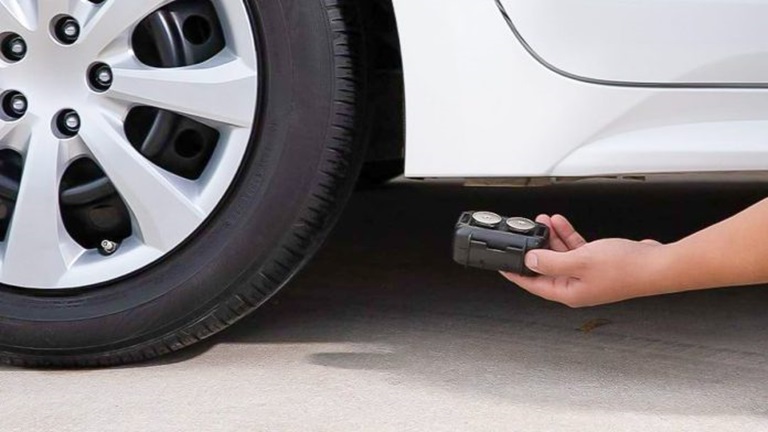Contents
Vehicle trackers are devices that communicate with specific satellites to pinpoint the location of your car. However, unlike the GPS navigation systems built into vehicles, these trackers do not offer directional guidance. Instead, they rely on software to provide precise location details on your location without directing you from point A to point B.
While many associate GPS with navigation, the global positioning system itself varies, as different countries maintain their own satellite networks. For instance, Russia has GLONASS, China has BDS, Japan operates QZSS, the European Union uses GALILEO, and India manages IRNSS. GPS, which is the most widespread, refers to the United States’ satellite system. These various satellite systems play a crucial role in enabling GPS vehicle trackers to provide accurate location data, enhancing their effectiveness in monitoring and securing vehicles.
Types of Vehicle Tracking Devices

Hardwired
Hardwired GPS trackers are integrated directly into a vehicle’s electrical system, making them one of the most discreet options. Although installation involves dealing with wiring, the advantage is that you don’t need to worry about where to place the device. This type of aftermarket tracking car device is designed to blend in seamlessly, resembling factory-installed components, and requires minimal maintenance.
Battery-Powered
Battery-powered GPS trackers offer more flexibility in terms of installation, allowing you to place them wherever you see fit. While their installation is straightforward, the downside is the need to occasionally replace the batteries. The performance of these devices depends on the type of battery used and the frequency at which they transmit data.
Plug-n-Play
Plug-and-play trackers are the easiest to install, as they connect directly to your vehicle’s OBD port. These trackers offer the same functionality as hardwired and battery-powered models but without the hassle of wiring or battery replacement. If discretion is not your primary concern, plug-and-play trackers are an excellent choice, combining ease of use with powerful tracking capabilities.
Active vs Passive
No matter the type of tracking car device you go for it can be either a passive or active auto tracker. Passive trackers record data about the vehicle’s movements but do not transmit this information in real time. Instead, you must connect to the device manually, usually via cable, to retrieve location data. While this method can be limiting, it serves its purpose for users who don’t require constant updates.
Active trackers provide real-time location data, sending updates at regular intervals or whenever the vehicle changes location. This makes them a more versatile solution, particularly for those managing a fleet or keeping track of a vehicle in remote areas. The data is stored on the cloud, making it accessible from anywhere at any time.
Features of Vehicle Trackers
Real-Time Tracking
Real-time tracking, available only with active trackers, is invaluable for anyone wanting immediate updates on their vehicle’s location. Whether you’re monitoring a fleet or keeping an eye on a teenage driver, this feature ensures you’re always informed of your vehicle’s whereabouts.
Geofencing
Geofencing allows you to define virtual boundaries for your vehicle. If the vehicle leaves or enters a specified area, the GPS tracker sends an alert. This feature is particularly useful for monitoring whether vehicles are staying within permitted zones or if they stray into restricted areas.
Alerts
GPS trackers can send various alerts to your phone, including notifications when the vehicle moves, stops, or exceeds a certain speed. You can even set up alerts for deviations from specific routes or create periodic alerts that notify you at regular intervals.
Reports
Most GPS trackers also offer the ability to generate reports. These can provide detailed summaries of vehicle activity over a specific time frame, such as daily or weekly reports, depending on your needs. Reports help you track patterns and make data-driven decisions.
Benefits of Tracking Devices
Enhanced Safety
Compared to more “in your face” GPS car accessories, trackers are actually able to improve the safety of your vehicle and its occupants. By knowing your vehicle’s location at any time, you can detect unusual driving behaviours or suspicious activity. In the unfortunate event that your car is stolen, a GPS tracker allows you to locate it swiftly, increasing the chances of recovery before it is dismantled for parts.
Improved Organisation
For businesses managing a fleet, GPS trackers can help streamline operations by optimising routes and schedules. With better oversight of vehicle movements, you can increase workplace productivity while simultaneously reducing running costs. Knowing the precise location of each vehicle allows for more effective coordination and management.
Increased Efficiency
Monitoring commonly used routes and identifying areas for improvement can significantly boost a company’s efficiency. With less time wasted on inefficient routes, businesses can lower operational costs and improve overall productivity—all with a relatively low initial investment.

